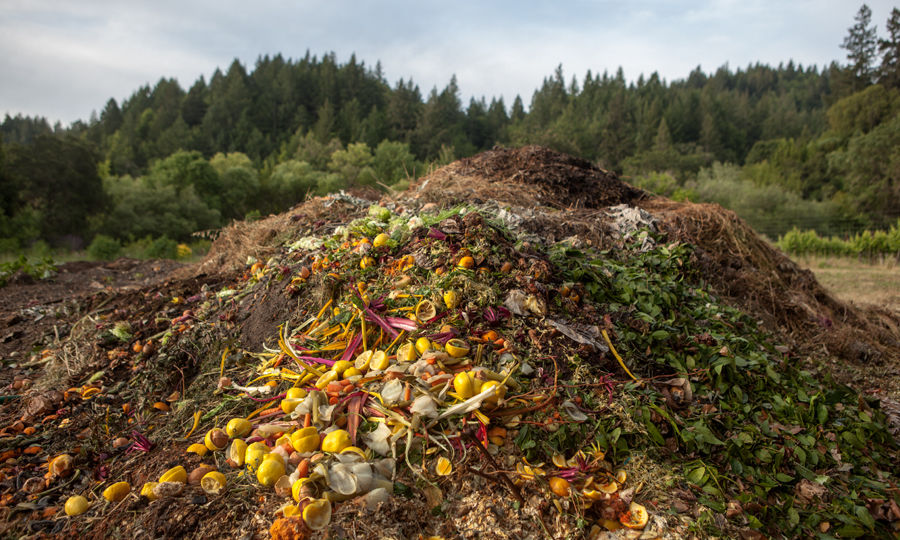Getting Started with Compost
- Sarah

- Jan 15, 2020
- 3 min read
Updated: Jan 21, 2020
One of the best ways to get on top of reducing your general waste (especially if you do not have access to a green waste bin) is to start a compost at home BUT this can be a daunting task if you haven't ever composted before. That said, our compost (a 220L bin that cost me $60 from Bunnings) seems to be a black hole. We and at least 6 of our neighbours put all our food scraps in and it's never once gotten to the top. It's like magic!
I will admit that sometimes composting can be quite gross - during summer time with the heat and flies it doesn't take long for maggots to start living on the insides of our standing bin and then for troops of ants to try and hunt down those maggots, but if you can get past that grossness (or if your partner can) then it's great because it gets broken down much quicker.
There are several ways to compost:
Establish a Compost Heap

If you are lucky enough to have a large garden and the space to dedicate to a compost "zone" then establishing an open compost is a great idea.
This certainly makes it easier to turn over the compost with a garden fork and if you have the skills (and resources) then you can try walling off the heap so that it doesn't "fall" into the rest of your garden (or on you!).

Buy (or repurpose) a Standing Bin
This is what we have and there are a large number of inexpensive options available for purchase in Australia. Additionally, repurposing an upright drum or other container could serve a similar purpose.
As with the compost heap, you will need to manually turn the compost every few weeks.
Thus far we have found it incredible; although we haven't had to move it yet so that's a challenge yet to face!

Rotating/Tumbler Bin
Another option is to purchase a rotating bin or tumbler. This is useful because you do not have to manually turn the compost with a fork however the price point does jump up by at least $40 for the basic model and $200 for the fancy model.
BUT if you can afford it, then this is certainly the best way to get started on composting!

Share Waste
My final suggestion for composting is for anyone looking to get started who may not want to commit to the permanence of their own compost bin.
Share Waste is a community of people who own chickens or a compost bin and will accept your waste. This is a growing movement that is based largely in major hubs, however more regional locations are beginning to participate also.

What to use for Indoors Containers
We rotate through three 2 litre ice cream containers that we put scraps into each day. I've found that using a smaller container encourages me to empty it more frequently AND while it's not sightly on the kitchen bench, having an open container means we don't forget to empty it. There was that unfortunate incident the first and last time I used one of the tin compost bins with a lid but we won't go into that in case I spew over the keyboard!
The other reason we use empty ice cream containers is to encourage ourselves to reuse items rather than instantly discard them. Kmart have a rather lovely metal compost bin that only costs $9 (pictured) and while I think it would look gorgeous on my kitchen bench, I'm going to wait until the ice cream containers serve another purpose before reaching for my purse and instantly replacing what currently works.
Back to composting! You can put almost any fresh produce in your compost bin apart from onions and protein. Every week remember to add a few handfuls (or more) of leaf matter so that you have an even mix of wet and dry throughout. If you have any shredded paper this can also go into your compost bin as it can't go into your yellow lid bin anyway.
The trick to compost is remembering to stir, roll or pitch fork everything so that it mixes; if you can remember to do this once a fortnight then you'll be on top of things. But don't worry if you can't always do this - honestly sometimes we forget for months on end!
THREE Take Home Tips:
Do not put onion, meat, or other protein (egg, cheese) in your compost.
Remember to add dry material (leaf matter or shredded paper) to balance any wet material.
If possible, always position at a reasonable distance from your house to avoid compost flies and cockroaches in your living space.









Comments